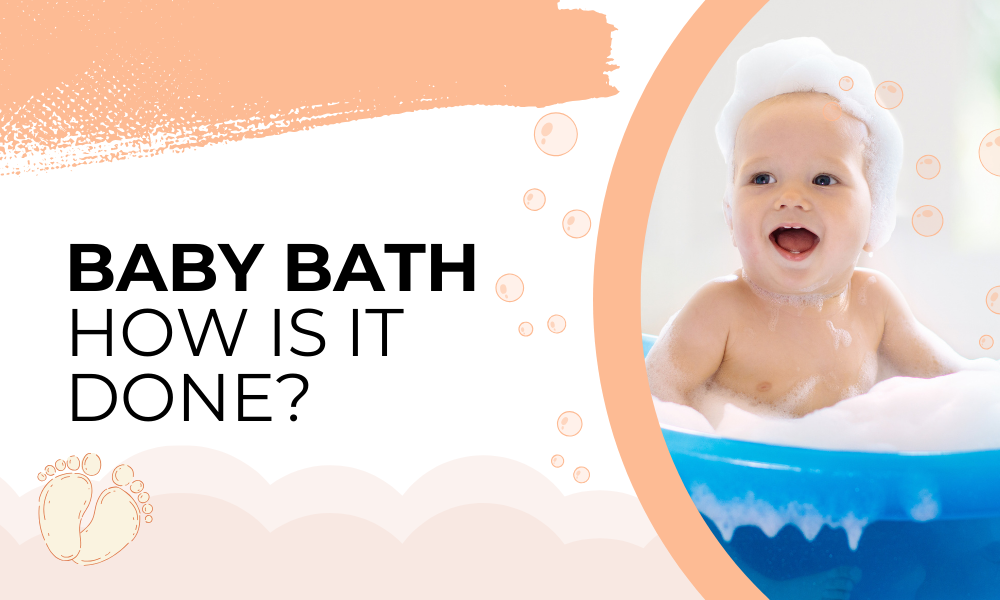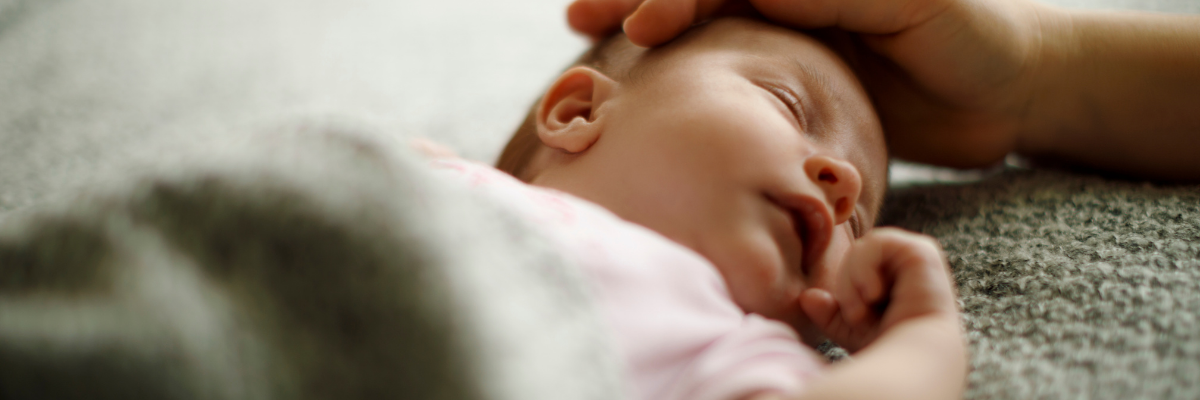How to Give a Baby Bath? Newborn Care Guide

How to Give a Baby Bath? Newborn Care Guide
For families with a newborn baby, one of the most delicate and crucial parts of baby care is the baby bath. Baby development, especially in the first months, requires careful observation and attention. This guide will provide step-by-step information on baby bathing and newborn care, helping you learn the healthiest and safest methods for your babies.
When to Bathe Newborn Babies?
Newborn babies usually start bathing in the first week of their lives. However, waiting until the baby's umbilical cord falls off reduces the risk of infection. After the umbilical cord falls off, babies can begin to be bathed regularly.
How to Bathe a Baby?
Baby bathing should be done in a way that protects babies' skin and provides a relaxing experience.
- Temperature of Bath Water: The baby's bath water should be 37-38°C. This is the ideal temperature that will protect babies' skin and comfort them.
- Bathing Frequency: Newborns can be bathed 2-3 times a week. Avoid frequent bathing to prevent the baby's skin from drying out.
- Bath Time: Baby bath should last between 5-10 minutes. Long baths can cause the baby's skin to dry out.
- Safe Bathing: Gently lower baby into the water and support him with one hand at all times. Clean gently using a soft sponge or cloth.
What to Buy for a Newborn Baby?
A newborn baby's list of needs should cover both the baby's comfort and basic care:
- Clothes: Newborn clothes, booties, hat
- Bathroom Equipment: Baby shampoo, body lotion, soft towel
- Bedding Materials: Crib, sleeping bag, baby blankets
- Feeding Equipment: Pacifiers, feeding bottles (if used)
- Cleaning Products: Wet wipes, baby diapers
Care should be taken to ensure that all cosmetic products contain natural or organic ingredients.
Can Newborn Babies be Given Water?
It is generally not recommended to give water to newborn babies for the first 6 months. Babies can get all the fluid they need from breast milk during this period. It is important to always follow your doctor's recommendations.

Newborn Baby Care
Newborn baby care is critical for baby health and development. Meeting the baby's basic needs, regular health checks and providing a loving environment are necessary for their healthy development.
The newborn period is a learning and adaptation process for both the baby and the parent. Being conscious and attentive about your baby's care will ensure that they grow up in a healthy way. Every baby is different, and over time, you will learn to understand your baby's unique needs. It is important to be patient and informed about baby development during this process. Here are some additional tips on newborn baby care:
Sleep patterns
- Safe Sleep: Placing your baby on his back reduces the risk of sudden infant death syndrome (SIDS).
- Sleep Environment: Keeping the bedroom comfortable, quiet and dark helps the baby sleep better.
Nutrition
- Breast Milk: During the first six months, the ideal nutritional source for babies is breast milk. Breast milk contains all the nutrients babies need.
- Feeding Frequency: Newborns usually feed every 2-3 hours. Pay attention to your baby's hunger cues.
Health Tracking
- Regular Doctor Checks: Regular doctor visits are important to follow your baby's development and detect any health problems early.
- Vaccinations: Vaccinating your baby in accordance with the vaccination schedule provides protection against various diseases.
Baby Safety
- Home Safety: As your baby starts to move, it becomes important to take safety precautions at home. It is necessary to cover sharp corners with protectors and place hazardous materials out of reach of the baby.
- Transportation Safety: During car travels, it is vital that babies are transported safely in appropriate baby seats.
Establishing an Emotional Connection
- Physical Contact: Lots of hugs, massages and skin contact with your baby strengthen the bond between you.
- Talking and Songs: Talking, singing songs, and reading books to your baby support emotional development and language skills.
Caring for a newborn baby is a challenging but also extremely rewarding experience. Every moment you spend with your baby helps him or her discover the world and grow as a healthy individual. The challenges and learning opportunities you encounter along the way are valuable parts of your parenting journey. Being patient and loving in caring for your baby will lay the foundation for your baby to live a happy and healthy life.
Step by Step Guide for Newborn Baby Bathing
Preparation Phase
1: Plan Bath Time
Bathe your baby when he is calm and comfortable, not immediately after feeding.
2: Prepare Required Materials
Pack baby shampoo, two soft towels, clean baby clothes, baby lotion, a baby bath sponge, and a container or plastic baby bath.
3: Adjust Water Temperature
Adjust the water temperature to 37-38°C. You can check this with a bath thermometer.
4: Prepare the Environment
Adjust the temperature of the bath room to a comfortable level so your baby doesn't get cold.
Bathing Stage
1: Gently Put Baby Into Water
Support your baby under the armpit with one hand and slowly lower him into the water.
2: Wash Your Face
Gently wipe your baby's face with a clean cloth. Be careful around the eyes and avoid using shampoo and water.
3: Wash Your Body
Using baby shampoo and sponge, gently wash your baby's body. Don't forget the scalp.
4: Rinse
Gently rinse your baby's body with clean water. It is important to rinse the shampoo well.
5: Dry
Place your baby on a second clean towel and dry him gently. Dry the baby's skin with gentle patting movements, without rubbing.
4: Dress and Moisturize
Dress your baby in clean clothes. If necessary, use a mild baby lotion to moisturize his skin.
Post
1: Comfort Baby
After bathing, spend some calming time with your baby. This relaxes them and ends the bathing experience on a positive note.
2: Security Check
After each bath, review the area where you bathe your baby for safety. Make sure there are no sharp or dangerous objects.
Following these steps will make your baby's bath time both a safe and enjoyable experience. Bathing is an important way to bond with your baby as well as maintain their hygiene and health.
Labels: Newborn Baby, Baby Development Month by Month, Baby Bath, 1-Month-Old Baby Development
March 21, 2024
Return to List